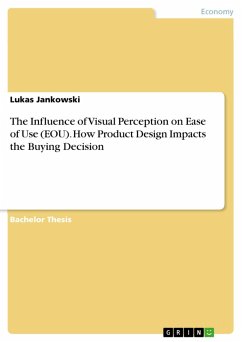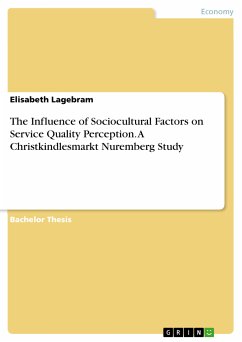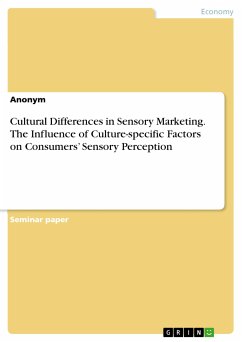Bachelor Thesis from the year 2016 in the subject Business economics - Offline Marketing and Online Marketing, grade: 1,7, University of Mannheim, language: English, abstract: The goal of this thesis is to give a structured overview of the current state of research with regards to the impact of visual appearance on Ease of Use (EOU) perceptions and their influence, in turn, on innovation adoption. Further, it will be examined which boundary conditions potentially inhibit this effect. A product's design is found to have multiple roles it can pursue to fulfill different consumer needs. Thus, an understanding of the relative influence of the various dimensions of product appearance on EOU perceptions is crucial to design an optimal product/system for the right context. Consumers, on the other hand, will benefit from these design cues as they provide valuable inferences about category membership, correct usage, expected performance and preference for an innovation. Besides the importance of identifying potential determinants of ease of use (EOU) perceptions, it is critical for managers and designers to understand that these beliefs are often derived from the visual appearance of a product as an intuitive judgement heuristic. Visual appearance usually forms the first impression, hence judgements of visual newness are frequently made before the assessment of more functional attributes of the product. Not surprisingly, design has been rated "the most important determinant of new product performance" among marketing managers in 1988 (Bruce and Whitehead 1988). Especially with regard to the fast technological development, the omission of usability concerns in favor of additional functionality has led to an increased complexity. This heightened complexity will potentially translate into "product return rate, future brand loyalty" and "delays in product usage" (Wood and Moreau 2006). Thus, reducing the usage uncertainty associated with an innovation is critical for both managers - in order to improve innovation acceptance.
Dieser Download kann aus rechtlichen Gründen nur mit Rechnungsadresse in A, B, BG, CY, CZ, D, DK, EW, E, FIN, F, GR, HR, H, IRL, I, LT, L, LR, M, NL, PL, P, R, S, SLO, SK ausgeliefert werden.









